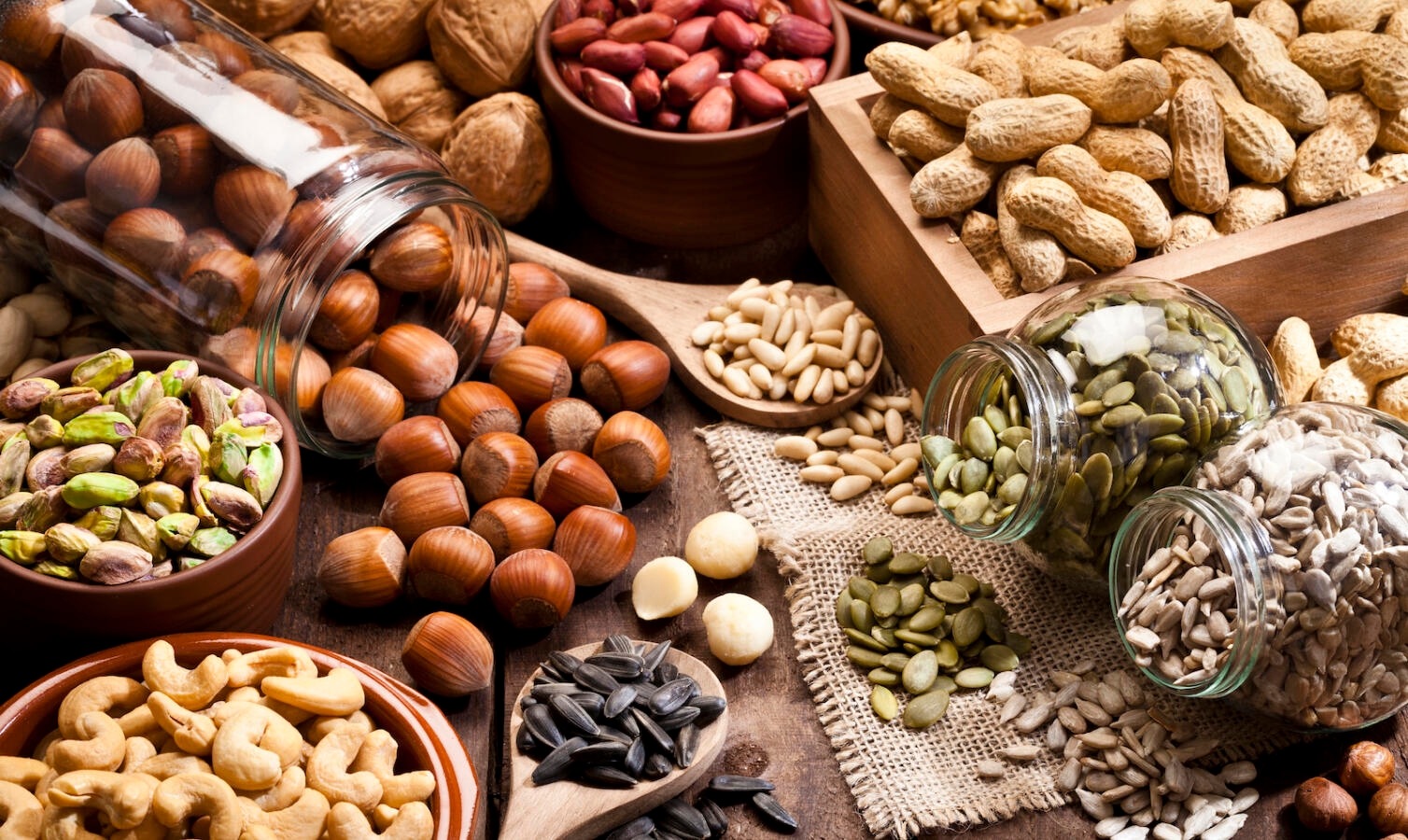The short answer: Some yes, some no. Scroll down for a list, but continue reading for an explanation.
On Passover, it’s forbidden to consume hametz, defined as the fermented product of any of five grains: wheat, barley, oats, spelt and rye. Seeds, at least those from any other plant than those five, would therefore seem to pose no problem on Passover. And this is often the case — but not always.
The main complication is the category known as kitniyot, a category of grain-like foods that Ashkenazi Jews have avoided on Passover at least since medieval times. (This category does not apply to Sephardic Jews.) Kitniyot is often defined as legumes, but in reality it is a category of food that includes certain legumes, rice, millet and the seeds of various other plants. There are three reasons commonly given for why kitniyot are not consumed on Passover. First, kitniyot can be ground into flour and baked just like the five grains, so people might get confused and believe they can therefore eat hametz. Two, kitniyot are harvested and processed in a manner similar to hametz. And three, kitniyot were liable to have hametz grains mixed in with them (at least historically).
However, there are foods that run afoul of none of those concerns that are nonetheless considered kitniyot. Neither mustard nor sesame seeds are typically ground into flour, processed like grains, or commonly mixed together with a prohibited grain, yet both are considered kitniyot. There simply are no generally applicable rules for which seeds are kitniyot, the primary qualification of which is whether something has customarily been considered kitniyot.
With your help, My Jewish Learning can provide endless opportunities for learning, connection and discovery.
This is why certain foods that might logically be considered kitniyot — such as potatoes (which can be made into flour) and quinoa (ditto, and it looks an awful lot like a grain) — are not. They were simply unknown to European rabbis in the Middle Ages and thus no customs arose concerning their use on Passover.
Among Ashkenazi Jews, the following seeds are generally considered kitniyot: mustard, sesame, flax, sunflower, hemp, buckwheat, fennel and poppy.
The following seeds are not kitniyot, and therefore permitted: chia, pumpkin, coriander and cumin.
Peanuts and fenugreek are a matter of debate. Peanuts, though botanically a legume, are another New World crop that only arrived in Europe with the return of Spanish explorers. As a consequence, there is no longstanding custom barring them from being eaten on Passover. And no less a religious authority than Rabbi Moshe Feinstein determined that they are not in fact kitniyot. Nevertheless, it is common for Ashkenazi Jews to avoid them on Passover.



